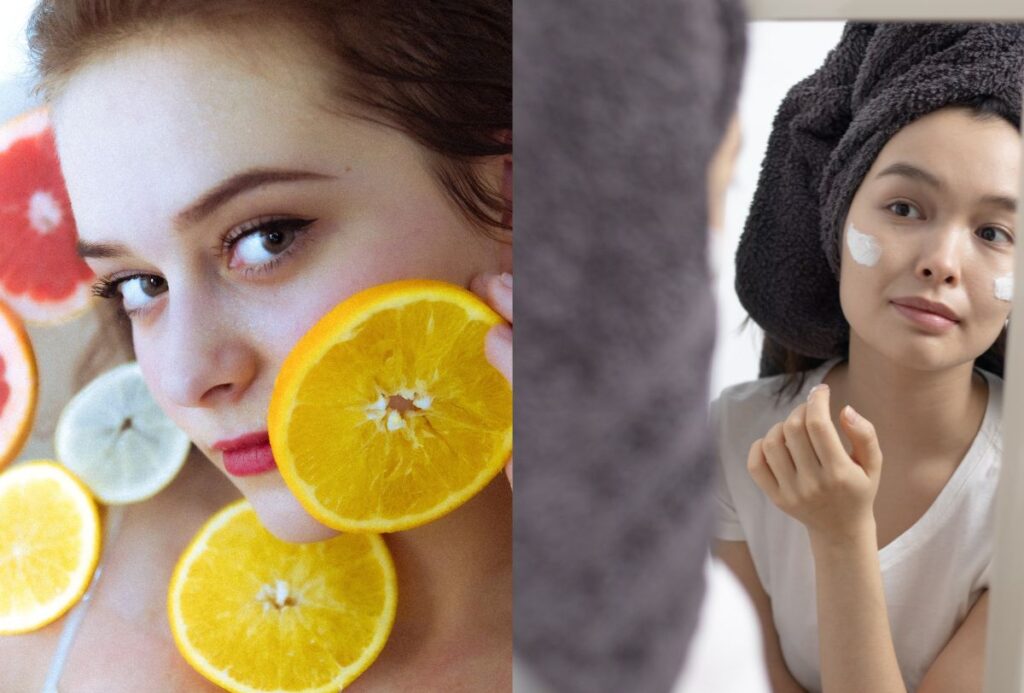Think Twice Before Making DIY Lemon Face Mask—Here’s Why It Can Ruin Your Skin

Think Twice Before Making DIY Lemon Face Mask—Here’s Why It Can Ruin Your Skin
Lemon is one of those ingredients that seems to be good for everything, from making your tea tastier to brightening up dull skin. But before you grab that lemon and start rubbing it on your face, hold on! While lemon has some great benefits, it can also harm your skin if used the wrong way.
Let’s understand how to use it safely and what you should never mix it with.
Why Lemon on the Skin Can Be Risky
Lemon might sound like a magical fix for skin problems, but applying it directly to your face can do more harm than good. The juice of a lemon is very acidic, and that can upset your skin’s natural balance. Your skin has a gentle protective layer called the skin barrier, and when the acid from lemon hits it, that barrier can get weak. This may cause your face to feel dry, itchy, or even painful.
Another big problem with lemon juice is that it can make your skin more sensitive to sunlight. That means if you go out in the sun after using it, you could end up with a rash, burning, or even dark spots that take months to fade. The lemon reacts with sunlight and can cause a type of burn that looks like a bad sunburn. So if you’ve ever seen people talk about applying lemon before going outside, don’t.
Visible Side Effects of Lemon on Face
Using lemon too often can strip your skin of its natural oils. This can lead to irritation, redness, or even small burns. Over time, your skin might start peeling or feel sore. Some people even notice that instead of reducing dark spots, the lemon actually makes them worse. That’s because when the skin burns or gets irritated, it can heal unevenly, leaving behind marks or darker patches.
Ingredients You Should Never Mix With Lemon
There are a few common “DIY” mixes that you might see on the internet, but some of them are really harmful.
Toothpaste
One of the worst ones is lemon and toothpaste. Toothpaste has strong chemicals meant for your teeth, not your face. When mixed with lemon’s acidity, it can cause rashes, peeling, and painful irritation.
Baking soda
Another bad mix is lemon and baking soda. Lemon is acidic, and baking soda is alkaline—when they combine, they cancel out each other’s pH balance and completely confuse your skin. This can make your skin dry, tight, and more likely to get dark patches later.
Salt
Then there’s lemon and salt. Some people use this as a scrub, but that’s a bad idea. The salt is rough and can create tiny cuts on your skin, while the lemon acid stings and irritates those small wounds. This can even lead to infections.

Turmeric
Lastly, lemon and turmeric don’t go well together for everyone. While turmeric has benefits, the mix with lemon can cause redness, burning, or make pigmentation worse, especially if you have sensitive skin.
The Right Way to Use Lemon on Your Skin
Lemon can still be useful if you handle it gently. The key is to never use pure lemon juice directly on your face. Instead, always mix it with something soothing like honey, aloe vera, or yogurt. These ingredients help calm your skin while still giving you the brightening benefits of lemon.
Before you try it, do a patch test. Apply a little bit of your lemon mix on your wrist or inner elbow. Wait for a full day to see if your skin reacts. If you notice redness or itching, don’t use it on your face.
It’s also best to use lemon treatments at night or when you’re staying indoors. Since lemon makes your skin more sensitive to sunlight, applying it before going out can lead to burns or dark spots. And even when used correctly, limit lemon treatments to two or three times a week—not every day.
Why Lemon Can Still Be Helpful
When used safely, lemon can brighten dull skin and help reduce oiliness. It’s rich in vitamin C, which helps even out your skin tone and makes it look fresher. It also gently removes dead skin cells, helping your face feel smoother. Lemon may also help your skin look tighter for a short time because of its natural astringent effect.
It can even support healthy collagen, which keeps your skin firm and youthful. But remember, these benefits only come when lemon is used carefully and not overdone.
Lemon can be both a friend and a foe for your skin. It has real benefits, but if used the wrong way, it can lead to irritation, burns, or even long-term dark spots. So if you want to use lemon, dilute it, mix it with calming ingredients, and never forget to protect your skin from the sun.
Disclaimer: This article is for general information only. Everyone’s skin is different, and lemon may not suit all skin types. If you notice irritation or discomfort, stop using it immediately and consult a skincare professional.












